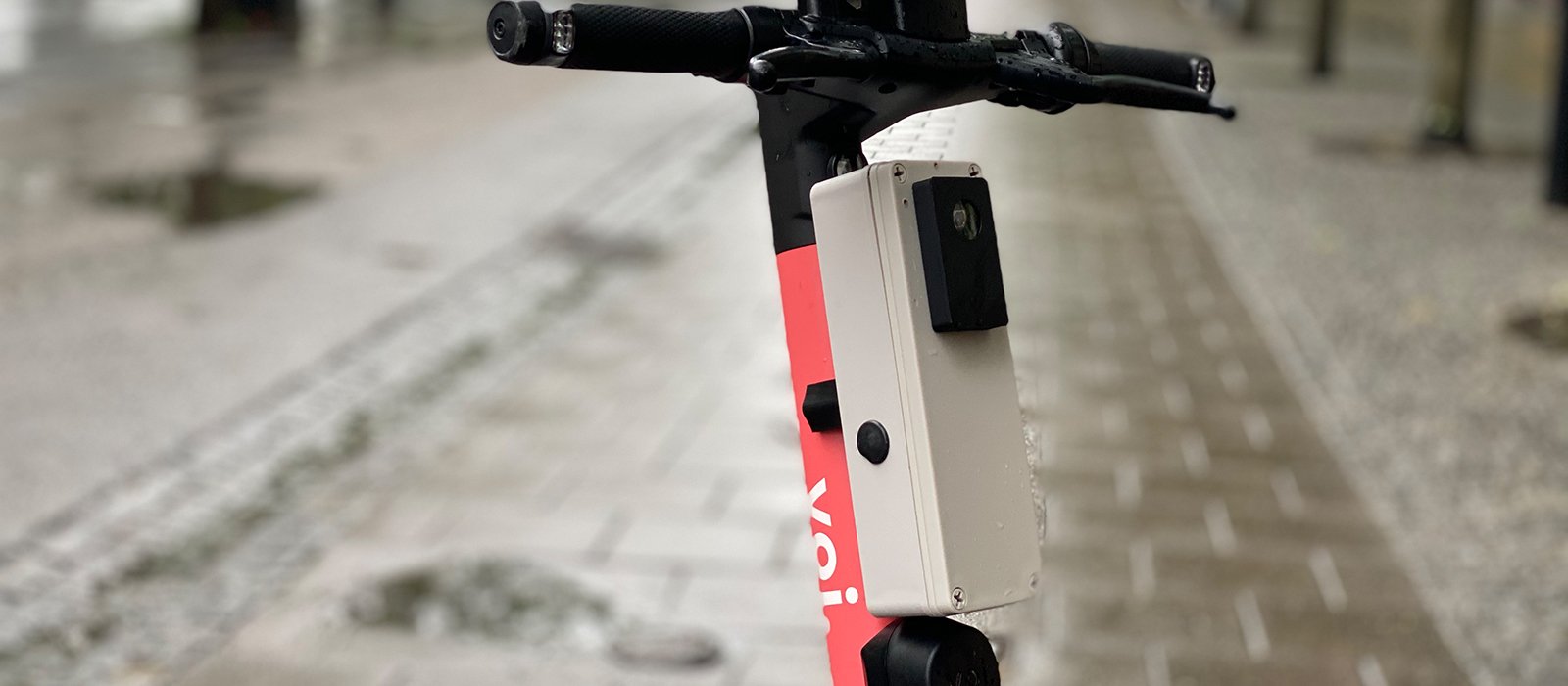Sweden's Voi is launching the world’s first large-scale pilot of computer vision on e-scooters in the UK city of Northampton. The AI technology can detect when an e-scooter leaves the road and rides on a pavement, as well as if the vehicle is parked correctly. Voi, who was notably left out of the London e-scooter pilot programme, clearly isn’t taking this snub lying down, as pavement riding and improper parking are commonly known as one of the largest complaints registered against shared e-scooters.
Operating in conjunction with Dublin’s Luna Systems, the AI-equipped Voi e-scooters with utilised real-time lane segmentation, similar to technology found in high-end automobiles, to determine adherence to local guidelines. A test programme is underway in Stockholm in preparation for full deployment in Northampton later this month.
Voi and Luna have been working on the project for the past six months, integrating the smart camera system, as well as computer vision algorithms being trained with hours and hours of video footage of Northampton.
In addition to keeping riders off the pavement and parking correctly, the Voi/Luna collaboration will convey real-time data about how the vehicles are being used, culminating in a series of tools that can then be used to identify problem areas and adapt existing infrastructure.
The rollout is planned in two phases. Phase one will see a controlled group test the computer vision technology and gather further footage for the algorithm to be trained on. The software is meant to properly detect the riding surface and sound an audible alert if driven on a footpath.
In the second phase of the trial, slated for later this summer, approximately 100 cameras will be installed on the public fleet of Voi e-scooters in Northampton. In addition to an audible alert, Voi plans to test an automatic speed reduction mechanism if the AI detects riders on an improper surface or when in heavily pedestrianised zones.
Voi reports that data will be shared with the Northampton city council, providing a record of how and where e-scooters are being ridden. Having a look at the UK Government's e-scooter trials privacy statement, "It is not possible to associate this data with any name, contact details or other personally identifiable information."
Admittedly, the trial version does look a bit bulky, but Luna Systems has indicated that they expect to be able to integrate the device directly into the stem or handlebars of e-scooters by 2022.
“With computer vision, e-scooters can be trained to see and recognise situations that are hazardous. This world-first pilot will set new standards of safety for this new form of transport,” commented Voi Technology CEO Fredrik Hjelm. “Having helped riders to take more than 60 million rides across Europe we understand deeply the issues involved in e-scooter safety and are always looking for ways to do better.”



Would you like to write the first comment?
Login to post comments